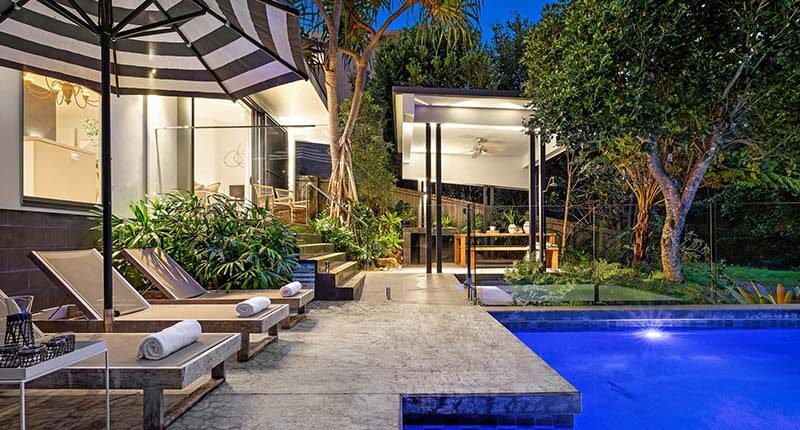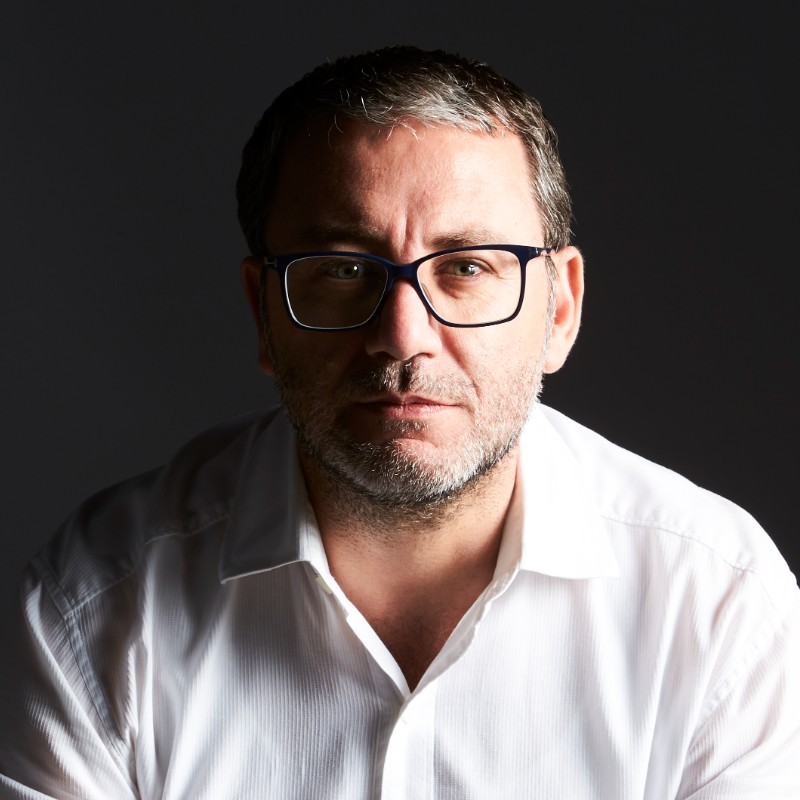
- An Australian first, Ko is disrupting the luxury holiday home ownership experience.
- The Ko platform allows multiple people to own a single holiday property, and the equity that comes with it.
- Ko manages the property maintenance, upkeep and administration, so owners can simply enjoy their holiday.
CTO and Co-founder of the game-changing Ko platform, John Hanna, says Australia and Asia Pacific’s very first co-ownership business is a positive disruption, paving the way for ease and affordability in the luxury holiday home market.
Within a year, Ko has studded the marketplace with stunning dream homes, answering the desires of those squeezed out of longed-for getaway homes, and those whose beloved holiday house lies empty for most of the year. The beauty of this platform? The Ko buying and selling process has done away with red tape and integrated real estate agents without disrupting that market.
Below, Hanna explains the Ko proposition and the extraordinary launch of this proptech platform.
It’s a no-brainer
Hanna said the Ko proposition is unique, given the current property crisis and extraordinary growth over the past 10 years.
“You’re getting great value for money, number one. Secondly, you’ve got ease of utilisation. And thirdly it’s hassle-free.”

The genesis of Ko came about in late 2021 when Hanna met up with Ryan Fritsch, now CEO and Co-founder of Ko.
“We started brainstorming about operating models that exist in Europe and the US that could also apply to Australia and the Asia Pacific region.
“Personally, I have a passion for real estate. I’ve built several of my own developments within the NSW markets over the years and I’m always looking at building, buying, and selling property.
“Ryan wanted to hear my take on the co-ownership model and gauge my interest in Ko. The rest is history.”
Vision centred around the premise that you, as co-owner, buy the asset, utilise the asset, and Ko completely manages that seamless experience for you. For Hanna, it just immediately clicked. “I said to Ryan that it’s something that’s missing. It’s a game changer for Australia absolutely, and the Asia-Pacific region.”
The question naturally arose, “Why hasn’t anyone else in the region already thought about this model?”
“It’s a dream come true,” said Hanna, “And that’s why our branding is Live Your Dream. It’s all about giving the co-owner that seamless experience in terms of asset ownership, and having an enjoyable, stress-free holiday.”
Targeting new and existing holiday homeowners
Hanna’s goal was to ensure that co-owners’ interaction with Ko would be engaging and transparent, guiding you effortlessly to the point where you can truly “Live Your Dream” by spending time in your luxury holiday home.
“When we investigated that co-ownership opportunity, we looked at it through the lenses of two user groups. Ko works just as much for an existing homeowner as it does for a new holiday homeowner,” said Hanna.
“Entry into the property luxury holiday home market is expensive. You may own your own home and want to expand into holiday home ownership. We are now giving you an innovative approach. You don’t need to own 100 percent, you can own from one-eighth up to half of that special property.
“And if you’re an existing luxury holiday homeowner and you want to gain back a bit of your capital (equity), this model is for you.”
A logistical challenge
Less than a year later, in 2022, the Ko team achieved a major milestone in launching its minimal viable product (MVP).“While architecting the Ko operating model, we found a significant amount of heavy lifting and testing was required around the legals, the trust structures, the tax, the compliance behind the platform,”said Hanna.
“Ko is first-to-market and offers something very unique, but what sits behind the tech is something operationally challenging and complicated. It’s the foundation for our ability to scale and grow geographically.
“Now we have 18 properties listed across Australia, Japan, and Indonesia, and we’re working on providing a greater selection through our platform, including New Zealand,” said Hanna.

Ko.homes, offers:
1. Affordability
The idea of buying something luxurious in this market at a fraction of the upfront cost is unique given the current, shocking state of the market: interest rates are creeping up, there’s a severe shortage of supply, and a significant rental crunch. Hanna said he believes it will be more of the same for the next several years.
As such, he has confidence that the demand for Ko is going to grow, as it is advantageous for both the seller and buyer.
2. Ease of utilisation
Holidays homes are typically used for around a fifth of the year (15% to 20%), said Hanna.
“So, if you own a $15 million property and are thinking that I’m only using $3 million worth and there’s $12 million left just sitting there.”
“Our proposition is this: What if you can offset up to 50% of that $12 million? That’s the dream, right?”
“I think the big difference between us and the existing real estate market is, for us, it’s not about the sale, it’s all about the seamless utilisation,” said Hanna.
“We want to drive utilisation. We want you to use the property because for us, that’s our Ko-owners living their dream. If we can have a luxury Ko holiday home in Palm Beach or Byron Bay that has been utilised 80 per cent of the year by its Ko-owners, we’ve done our job. We’re extremely happy with that,” said Hanna.

3. A hassle-free experience
The third opportunity with becoming a Ko-owner, is that the utilisation is 100% hassle-free.
“You don’t need to worry about the maintenance, the upkeep, and administration. All that is done for you, and this is the beauty of our platform. Once you’re in our ecosystem, we want you to stay in the ecosystem and enjoy your property,” said Hanna.
“We’re all about the experience. If you look at the life cycle of a Ko-owner, it’s about finding the dream property, buying your share of the property, the seamless utilisation of the property, and then, if required, the re-sale.”
“The Ko experience doesn’t just start and stop at the transaction. We’re there for the full lifecycle in our ecosystem and that is unique.”

The process
The Ko business model services both the buyer and the seller.
“The secret to our ecosystem is how we match the buyer and the seller to the property. We get that intersection between buyer and seller right because we’re working with an exceptional bunch of real estate agents and buyer’s agent partners. We see them as stakeholders, a part of our ecosystem,” said Hanna.
A positive disruption
“People may be disrupted by the fact that it’s not a single purchase,” said Hanna, “but co-ownership is a positive disruption. It’s evolutionary.”
Hanna added that: “We are not changing how real estate works. We’re taking the existing model, improving it, and providing more options. That’s what’s different.”
Ko’s focus is on simplifying the qualms and complexities of luxury property ownership and management. Hanna noted there are so many time-consuming, manual, human-based processes that simply disappear with Ko.
“The nature of our disruption is automation and then transparency. We want to streamline,” said Hanna, “And our architecture has all been based on exception management and exception handling and personalisation. If you get that right, your automation speaks for itself. Designed for future possibilities of expansion and asset diversification, even to the point of on-chain capabilities, smart contracts and tokenization of assets, radical but it’s the future.”
Tried-and-tested luxury
Ko is a curated experience. Ko visits the property, physically inspects it, and ensures every single property that goes onto the platform meets the Ko criteria.
“We make sure it’s fit-for-purpose because one thing we don’t want to damage is our brand,” said Hanna.
“On the sales side, we’re experimenting with virtual tours and launch events at these properties, depending on whether you’re local or flying in and then flying out.
“Our view is that purchasing shares in a luxury holiday home is not a decision that you will make in a split second. So, by the time you are inspecting Ko properties, we want to know your whole aspirational and emotional context.”
“When you fall in love with your dream home in a great location, it’s a very easy decision to live your dream.”







